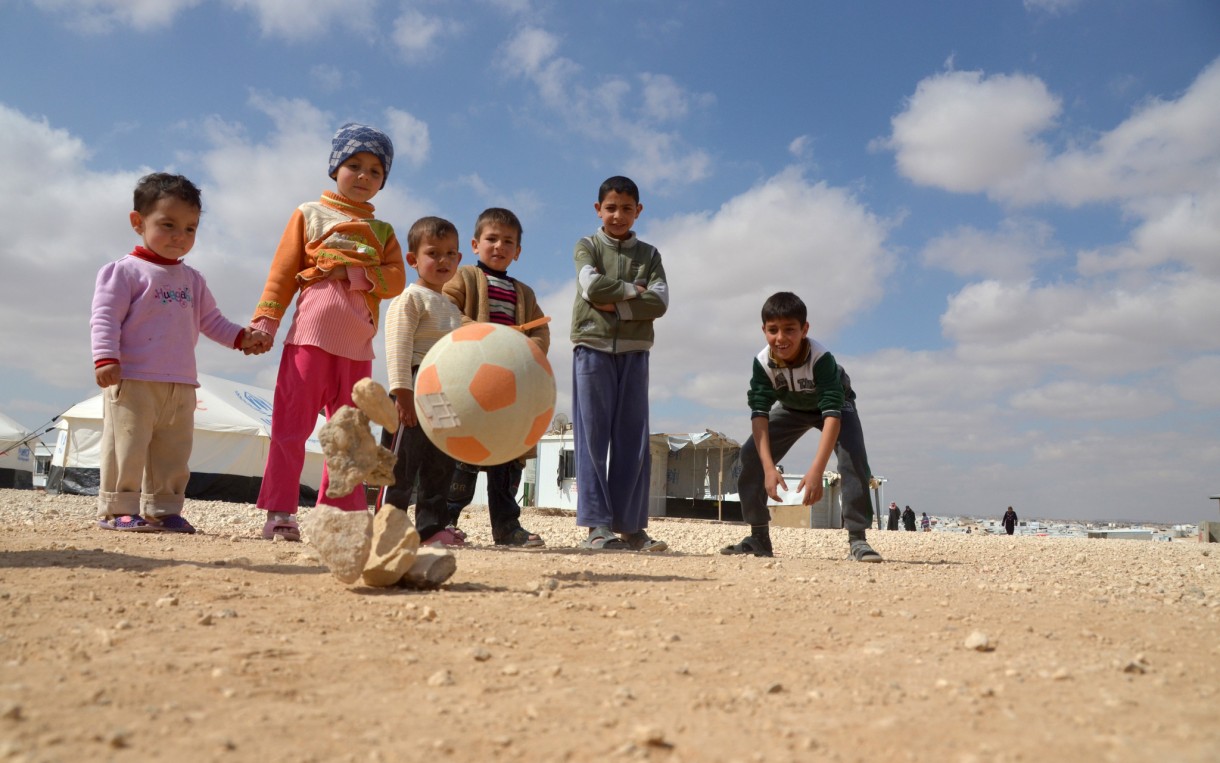Respecting difference as we strive for equality
 Kids play soccer in Zaatari refugee camp in Jordan. Oxfam is providing clean water and sanitation in the camp, which is home to tens of thousands of Syrian refugees. Photo: F. Muath/Oxfam
Kids play soccer in Zaatari refugee camp in Jordan. Oxfam is providing clean water and sanitation in the camp, which is home to tens of thousands of Syrian refugees. Photo: F. Muath/Oxfam
Why being equal doesn’t necessarily mean being the same.
Rachel Hayes is senior director of communications at Oxfam America.
My desk at Oxfam is by a window. I admit to having the best view in our Boston office. As I settle in early each weekday morning, I can’t help but notice the pedestrians and cars—the waking up of this bit of urbania.
There’s a school just up the street and this morning I saw a family heading there. When I joined their trek, Mom had son and daughter by the hands and she started skipping. Her daughter kept pace, enthusiastically swinging her arms. In two steps, the son dropped out, turned around and went back to dad who was walking just behind. He was at that age—maybe 8—where skipping for boys is no longer OK. How did he know that? Personal preference and instinct? Peer pressure? Regardless, I respected his choice—and his sister’s. They’re different kids—by personality, by gender, by birth order.
Working at an organization where we believe so strongly in gender equality and advocate for rights and opportunity for women, it’s sometimes hard to accept difference. I grew up with only sisters, so my experience was of the “who” of girls being the norm. But I have a son, and I saw him and me in this little scene this morning. I appreciated our differences and what our differences bring to the world. I thought about our likenesses too, but was most struck by how differently we go through the world. People may not see me skip—I do it in my head—while he walks and runs. We’re both just fine the way we are. We don’t need to be the same to be equal.
This realization feels especially relevant at this moment. The political vitriol about immigration in America and the burgeoning humanitarian crisis of migration from Syria, Afghanistan, Eritrea, and other countries drives us to examine our notions of difference and similarity. Globalization isn’t only about markets, it’s about changing our view of others—accepting and embracing difference while we demand equality.
More than 4 million refugees from Syria can’t go home. Without adequate food, clothes, and shelter, families are struggling. You can help.